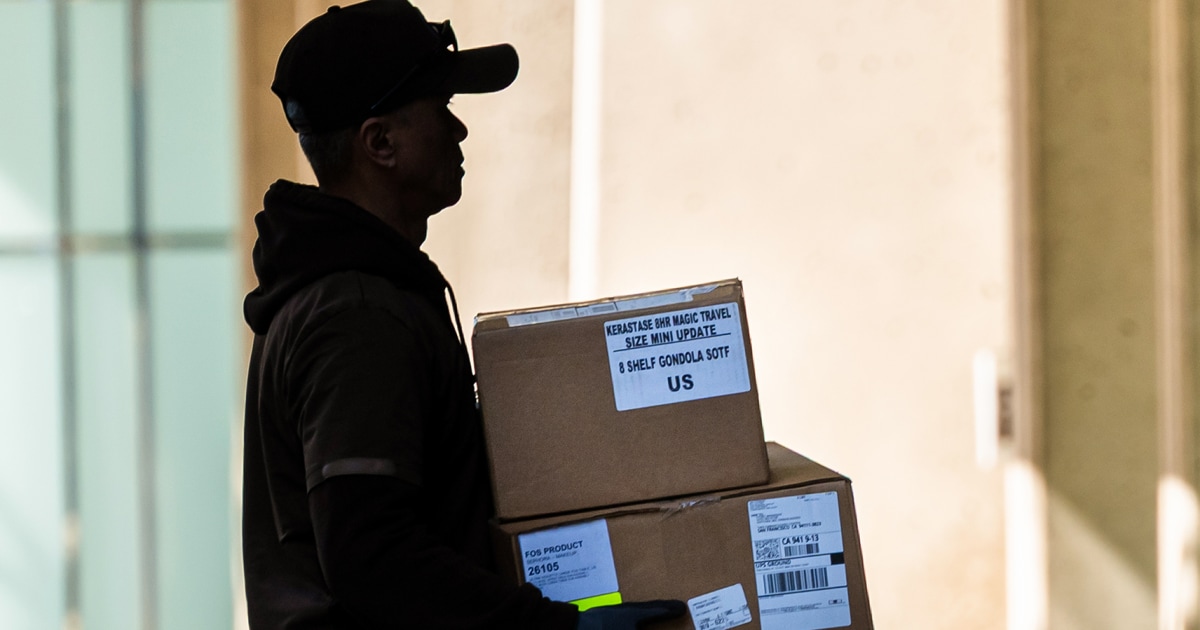The de minimis exemption for low-value packages sent to the United States ended Friday, wreaking havoc on international shipping as mail companies, businesses and consumers try to navigate the new rules.
Packages sent to the United States valued at less than $800 will now face tariffs and fees. They will be charged either the tariff rates the United States has on their countries of origin or flat fees of $80 to $200 — the latter option available to postal carriers only in the first six months. The shipments may face additional tariffs and fees in some cases.
John Pickel, vice president of supply chain policy at the National Foreign Trade Council, said that it could take longer for some packages to arrive and that consumers and businesses in the United States could end up with significantly higher costs.
“On your average de minimis shipment, paying a customs broker and paying the fees will double the cost,” Pickel said. “That’s before you even get to the money that’s actually going to the government.”
One small business concerned about the change: Greenwich Letterpress, a stationery store in New York City. Co-owner Beth Salvini said about half of the store’s items come from other countries: greeting cards from the U.K., handmade notebooks from Portugal, stationery from Japan. With the exemption ending, Salvini plans to raise prices.
“In retail, you don’t buy something for $5 and sell it to your customer for $2,” she said. “This shop is not a hobby. It’s how I live and pay my bills. And my sister — she’s my partner. It’s how we pay our employees and our rent. And so the idea that we could take on every additional cost for such small goods is just not possible.”
The de minimis exemption streamlined processing of overseas shipments and allowed U.S. businesses and consumers to buy low-cost items from abroad without incurring massive charges.
All sorts of low-value items have fallen under the exemption, including small kitchen appliances and utensils, beauty products and apparel from companies like Shein, Temu and Etsy.
De minimis parcels made up 97% of overall shipping volume over the last three fiscal years, with around 4 million of those deliveries processed by U.S. Customs and Border Protection daily. In the 2024 fiscal year, most came from China: 994 million out of nearly 1.4 billion.
The White House has taken several steps this year to end the exemption, which it said has been used to “evade tariffs and funnel deadly synthetic opioids as well as other unsafe or below-market products that harm American workers and businesses into the United States.”
It ended the exemption for items from China and Hong Kong in May. There hasn’t been a significant change in monthly drug seizures since then, according to data from U.S. Customs and Border Protection.
Then, the tax and spending law President Donald Trump signed in July eliminated the exemption for all countries starting in 2027. But Trump’s executive order on July 30 condensed the timeline, ending the exemption on Friday.
There are some exceptions: American travelers will still be able to bring $200 in personal items back to the United States duty-free. And someone abroad can send a gift of $100 or less to the United States duty-free.
In the days leading up to Friday, dozens of package carriers around the world paused shipping to the United States as they sorted through the changes and updated their shipping procedures.
Salvini, the Greenwich Letterpress co-owner, said the business will no longer be able to buy certain items from abroad — and some of the shop’s international suppliers have cut off shipping to the United States anyway. So customers might see different items on the shelves, and Salvini and her team want to keep them as affordable as possible.
“We’ve always prided ourselves on being a space that you can come into and you could spend $1 and get something,” she said. “It’s not a luxury store. It doesn’t weed people out because it’s too much, and we just don’t want to get to that point where everything in here just feels like that’s just a little above what somebody might want to spend, because that’s not the joy that we try to show people.”









